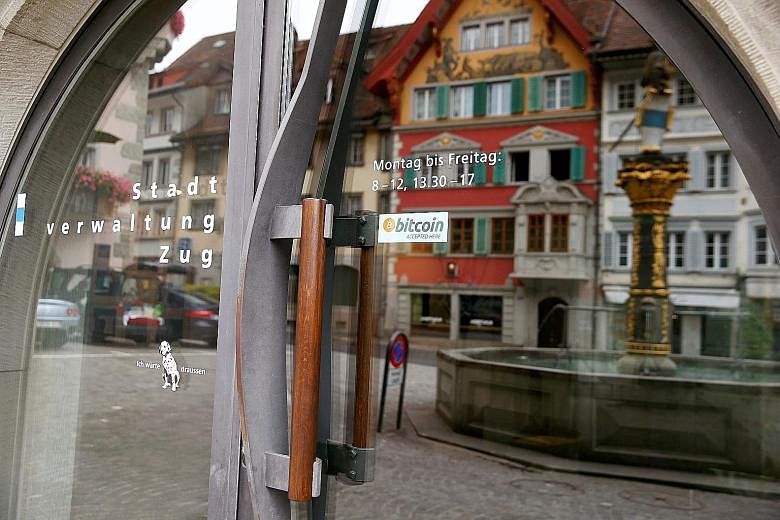ZUG (Switzerland) • The small Swiss canton of Zug, famed for the low taxes that have drawn multinational companies and hedge funds to its lakeside shores, is trying to turn itself into a hub for virtual currency firms.
Over the past half-century, Zug has transformed itself from "the poorhouse of Switzerland", sustained by fishing and manufacturing, into a headquarters for commodity giant Glencore and a home to the outposts of hundreds of global companies, becoming one of the country's wealthiest provinces.
But with tax reforms and the end of banking secrecy posing a threat to its business model, the canton wants to reinvent itself as a "Crypto Valley" - a base for start-up companies using virtual currencies like bitcoin and related technology.
In July, the town of Zug, the cantonal capital, launched a pilot programme allowing residents to make bitcoin payments for government services - a world first, according to Swiss media.
Together with a group of start-ups behind the "Crypto Valley" movement, Zug's economic promotion board has so far persuaded more than a dozen virtual currency firms to set up shop there and in nearby towns.
These include Ethereum, the foundation that provides the technology behind ether, the main rival to bitcoin, and digital currency exchange ShapeShift.
Mayor Dolfi Mueller says attracting more companies like these is central to the 2035 development plan the town has drawn up to ensure its economy can thrive as global tax laws get tougher. "This is one of the most globalised small towns in the world," Mr Mueller said. "We don't want to let that dynamic fall asleep."
South African businessman Johann Gevers was one of the first entrepreneurs to set up a virtual payment firm in Zug, establishing his transaction platform Monetas there three years ago.
Mr Gevers' business enables people without bank accounts to make digital payments and operates in more than a dozen African countries. He says Switzerland's decentralised government and lack of interference in business made it the best base for him.
He set up in Zug with ambitions of shaping it into the world's next major technology cluster.
"I believe crypto finance is the next big wave after the Internet," he said. "The country that succeeds in being the friendliest jurisdiction to attract crypto finance companies - that's going to be the financial centre of the future."
However, not everyone backs the initiative. Local Swiss People's Party councilman Gregor Bruhin said the project is "speculative", citing high volatility, system hacks and the potential for criminal activity in crypto currencies.
Located just south of Zurich with a population of 120,000, Zug is one of the smallest of Switzerland's 26 cantons and has one of the country's lowest tax rates, introduced in the 1940s as a way to lift itself out of poverty.
For now, the Swiss authorities and industry are behind Zug's push into crypto finance, believing it will allow the financial sector to diversify as the demise of banking secrecy looms.
"If we don't take part at the front of fintech, we don't deserve our title as a global financial centre," said Mr Martin Hess of the Swiss Banking Association.
REUTERS

